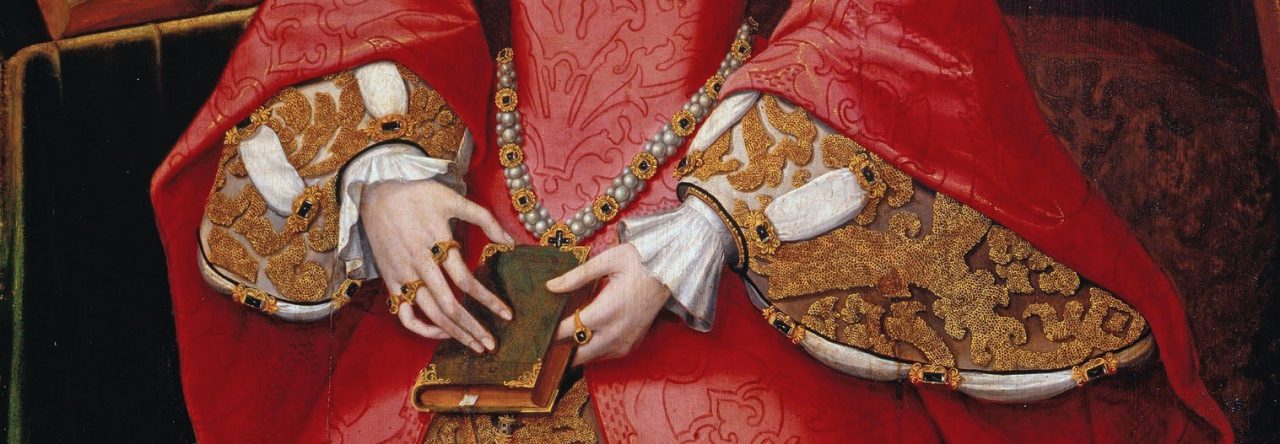By Meghan Constantinou, Librarian, The Grolier Club

Fig. 1. Bartolo of Sassoferrato (1313-1357). Super prima parte Digesti novi. Venice: Nicolas Jenson, 1478, leaf a2r. Grolier Club Library, Call no. \*34.15\Veni\J54\1478\Folio. Photograph by Meghan Constantinou.
At the Grolier Club Library, we were pleasantly surprised to discover an inscription documenting ownership by the English Restoration poet, Rachel Jevon (bap. 1627), on our copy of Bartolo of Sassoferrato’s Super prima parte Digesti novi, printed by Nicolas Jenson in 1478 (ISTC ib00216000). The inscription was discovered by John Lancaster while recording provenance details of the Club’s copy in CERL’s Material Evidence in Incunabula database (MEI). The database is searchable by gender, as well as many other facets. [1]

Fig. 2. Bartolo of Sassoferrato (1313-1357). Super prima parte Digesti novi, leaf a2r (detail). Photograph by Meghan Constantinou.
Rachel Jevon, born to a clergyman in the Diocese of Worcester in 1627, is known for writing a poem celebrating the restoration of Charles II in 1660. She wrote the poem in Latin and in an English translation entitled, Exultationis Carmen: To the Kings Most Excellent Majesty upon his most desired return, by Rachel Jevon; presented with her own hand, Aug. 16th (London: John Macock, 1660). (The Latin version is entitled: Carmen thrīambeūtīkou regiae majestati Caroli II). These are the only two recorded works attributed to her, and there is little other documentation about her life. Jevon’s panegyric to the restoration of the monarchy—the only such poem written by a woman in 1660—may have been part of a strategy to win the king’s favor, as two years later, she made a petition to the monarch for a position in the royal household. Elaine Hobby has remarked: “it was very rare for women to be taught Latin in the period, and almost unknown for them to publish in the language.” (p. 19).

Fig. 3. Bartolo of Sassoferrato (1313-1357). Super prima parte Digesti novi, upper cover. Photograph by Meghan Constantinou.
Bartolo of Sassoferrato (Italian, 1314-1357) was one of the most important jurists of the Middle Ages. His Super prima parte Digesti novi, written in Latin, was a commentary on part of the Digest of Roman Law, compiled by order of the Roman emperor Justinian I in the 6th century CE. The edition owned by Jevon was printed by the important Venetian printer, Nicolas Jenson, in 1478. The copy is in a contemporary, blind-tooled Italian binding, and, aside from some marginal annotations in a 15thc hand, the text is unadorned, lacking even painted initials to cover the guide letters. The lined-through signature (“Ex dono Rachell Jevon”) indicates that the volume was given as a gift, although the recipient is unknown. While we will never know why Jevon owned this work of medieval civil law, it would have been well-suited to a woman who was highly educated, skilled in Latin, and, as her poetry shows, in command of a wide range of subjects. [2]
*Questions about this work may be addressed to mconstantinou@grolierclub.org
Further Reading
Juan de Dios Torralbo Caballero, “’Behold how Thames Doth Smooth Her Silver Waves! […] Proud to Receive You to Her Watery Bed’: An Introduction to Rachel Jevon’s Stuart Poetry,” The Grove. Working Papers on English Studies 24 (2017): 153-167. DOI: 10.17561/grove.v24.a7. Accessed 15 August 2019 With further references.
Elaine Hobby. Virtue of Necessity: English Women’s Writing, 1649-88. London: Virago Press, 1988.
[1] A search for the phrase “gender:1001” retrieves all female owners of incunabula that have been recorded in either the main MEI database of individual copies, currently 811 copies that were owned by one or more women, or the database of owners, currently 354 women owning those copies. Of course, many of those owners are not from the early modern period; the search can also be qualified by date range – limiting the search to those active before 1800 returns only 27 women owners of incunabula (including also groups of religious women, i.e. convents). My thanks to John Lancaster for this information.
[2] Seventeen incunabula editions of Bartolus’s work have been recorded, indicating its importance. My thanks to John Lancaster for pointing this out.

Reblogged this on The Grolier Club and commented:
I am pleased to announce my guest post, written for the Early Modern Female Book Ownership blog. My thanks to Martine van Elk for allowing me to reblog it here! –Meghan Constantinou,
LikeLike